Cryptoqueen: How this woman scammed the world, then vanished - BBC News
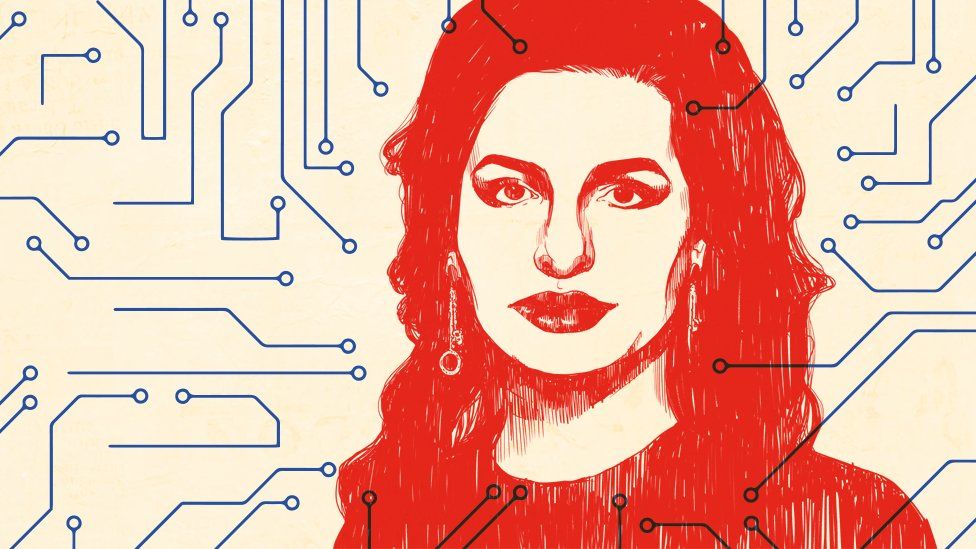
Ruja Ignatova called herself the Cryptoqueen. She told people she had invented a cryptocurrency to rival Bitcoin, and persuaded them to invest billions. Then, two years ago, she disappeared. Jamie Bartlett spent months investigating how she did it for the Missing Cryptoqueen podcast, and trying to figure out where she's hiding.
In early June 2016 a 36-year-old businesswoman called Dr Ruja Ignatova walked on stage at Wembley Arena in front of thousands of adoring fans. She was dressed, as usual, in an expensive ballgown, wearing long diamond earrings and bright red lipstick.
She told the cheering crowd that OneCoin was on course to become the world's biggest cryptocurrency "for everyone to make payments everywhere".
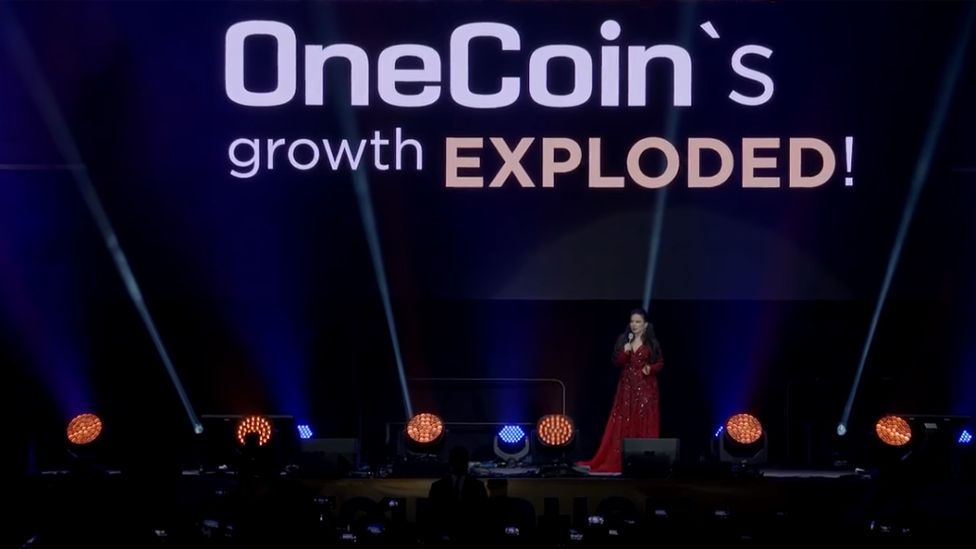
Bitcoin was the first cryptocurrency and is still the biggest and best-known - its rise in value from a few cents to hundreds of dollars per coin by mid-2016 had given rise to a frenzy of excitement among investors. Cryptocurrency as an idea was just entering the mainstream. Lots of people were looking to get involved in this strange new opportunity.
OneCoin, Dr Ruja told the Wembley audience, was the "Bitcoin Killer". "In two years, nobody will speak about Bitcoin any more!" she shouted.
All over the world, people were already investing their savings into OneCoin, hoping to be part of this new revolution. Documents leaked to the BBC show that British people spent almost €30m on OneCoin in the first six months of 2016, €2m of it in a single week - and the rate of investment could have increased after the Wembley extravaganza. Between August 2014 and March 2017 more than €4bn was invested in dozens of countries. From Pakistan to Brazil, from Hong Kong to Norway, from Canada to Yemen… even Palestine.
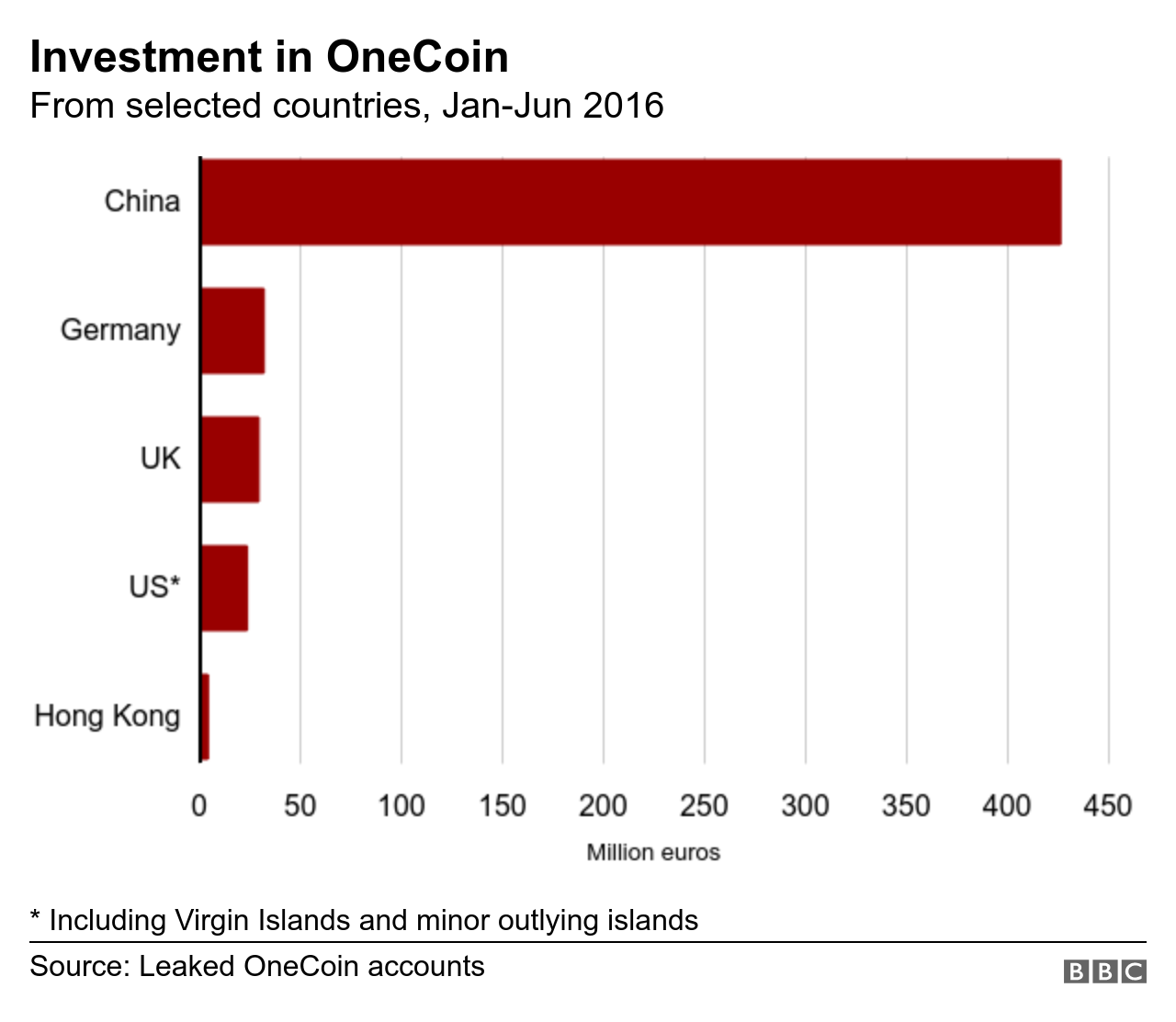
But there was something very important these investors didn't know.
To explain this, I need first to explain briefly how a cryptocurrency actually works. This is notoriously difficult - go online and you'll find hundreds of different descriptions, some of them utterly baffling to the non-specialist. But this is the first principle to grasp: money is only valuable because other people think it's valuable. Whether it's Bank of England notes and coins, shells, precious stones or matchsticks - all of which have historically been used as money - it only works when everyone trusts it.
For a long time, people have tried to create a form of digital money independent of state-backed currencies. But they have always failed because no-one could trust them. They would always need someone in charge who could manipulate the supply, and forgery was too easy.
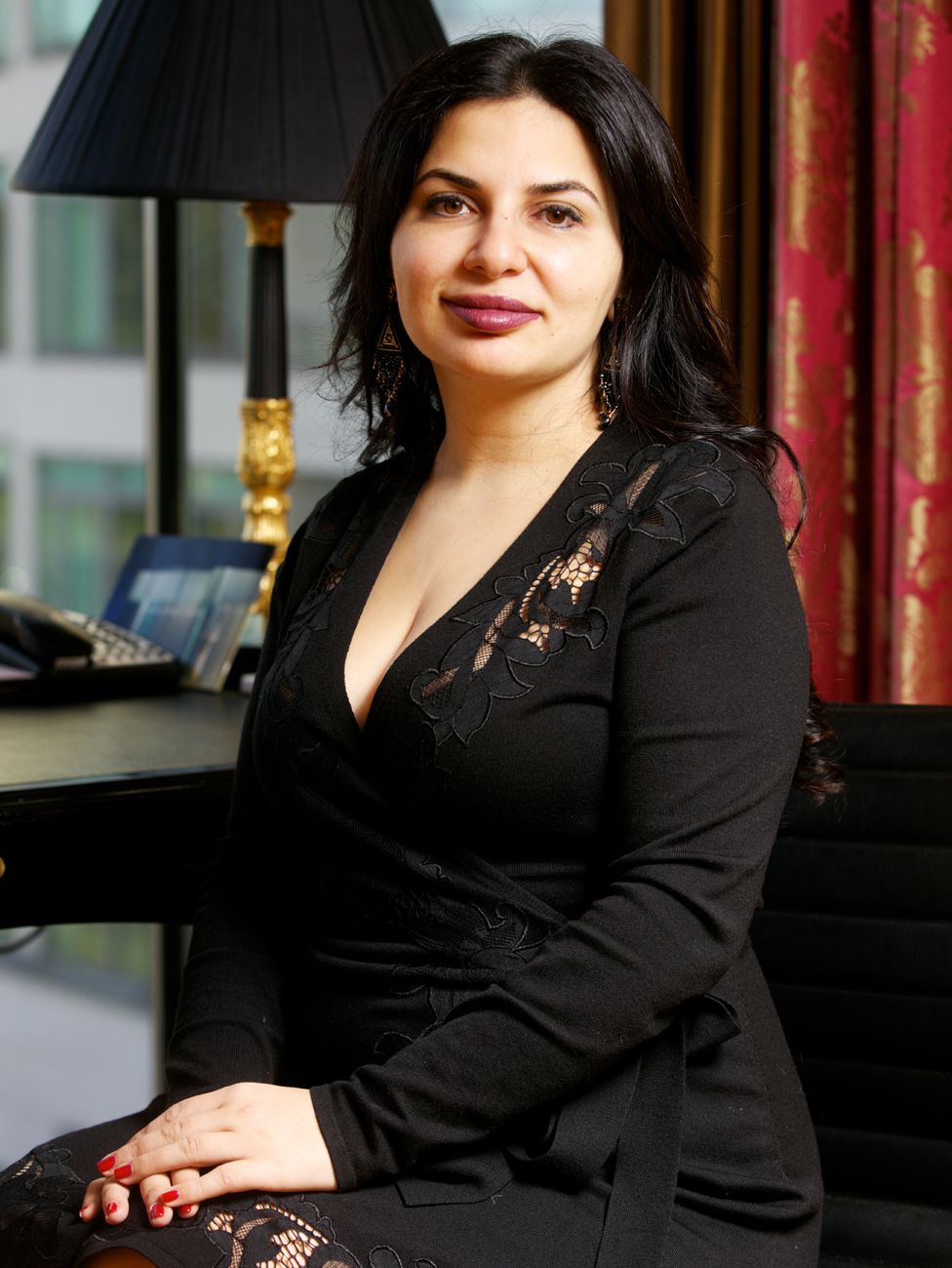

The reason so many people are excited by Bitcoin is that it solves that problem. It depends upon a special type of database called a blockchain, which is like a huge book - one that Bitcoin owners have independent but identical copies of. Every time a Bitcoin is sent from me to someone else, a record of that transaction goes into everyone's book. Nobody - not banks, not governments, or the person who invents it - is in charge or can change it. There is some very clever maths behind all this, but this means that Bitcoins can't be faked, they can't be hacked and can't be double-spent.
(I tested this explanation on my mother, the family technophobe, and she told me I'd failed to make it clear enough and should start again. So don't worry too much if you don't follow it either.) The key point is that these special blockchain databases are what make cryptocurrencies like Bitcoin work. For its fans this is a revolutionary new form of currency, with the potential to sideline the banks and national currencies, and provide banking for anyone with a mobile phone. And if you get in early, there's the chance to make a fortune.
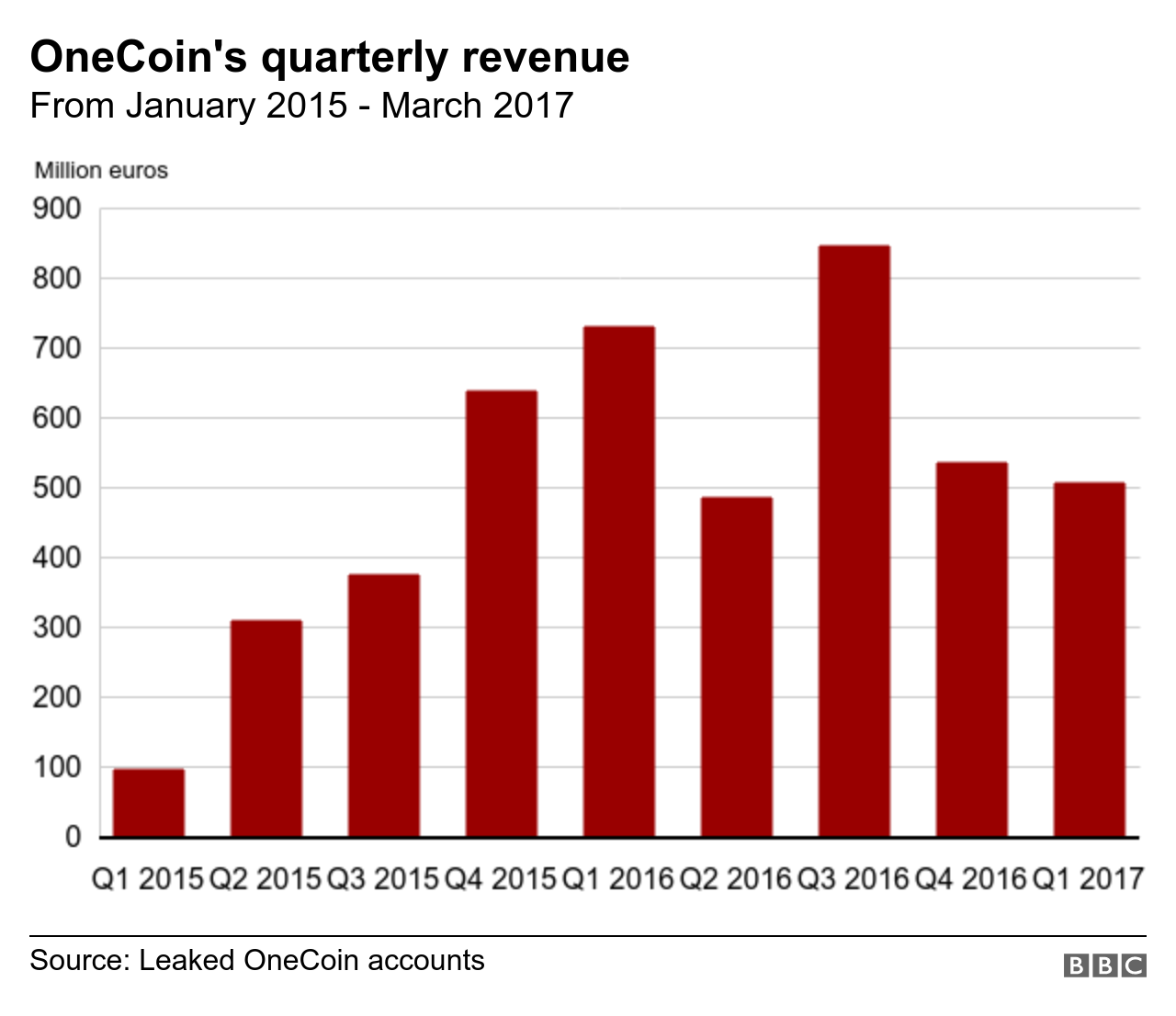
Dr Ruja's genius was to take all of this and sell the idea to the masses.
But there was something wrong. In early October 2016 - four months after Dr Ruja's London appearance - a blockchain expert called Bjorn Bjercke was called by a recruitment agent, with a curious job offer. A cryptocurrency start-up from Bulgaria was looking for a chief technical officer. Bjercke would get an apartment and a car - and an attractive annual salary of about £250,000.
"I was thinking: 'What is my job going to be? What are the things that I'm going to have to do for this company?'" he recalls.
"And he said: 'Well, first of all, they need a blockchain. They don't have a blockchain today.'
"I said: 'What? You told me it was a cryptocurrency company.'"
The agent replied that this was correct. It was a cryptocurrency company, and it had been running for a while - but it didn't have a blockchain. "So we need you to build a blockchain," he went on.
"What's the name of the company?" asked Bjercke.
"It's OneCoin."
He didn't take the job.
Jen McAdam's 'tycoon' package
One spring day a few months earlier, Jen McAdam received a message from a friend about an unmissable investment opportunity. Sitting at her computer, the Glaswegian clicked on a link and joined a OneCoin webinar.
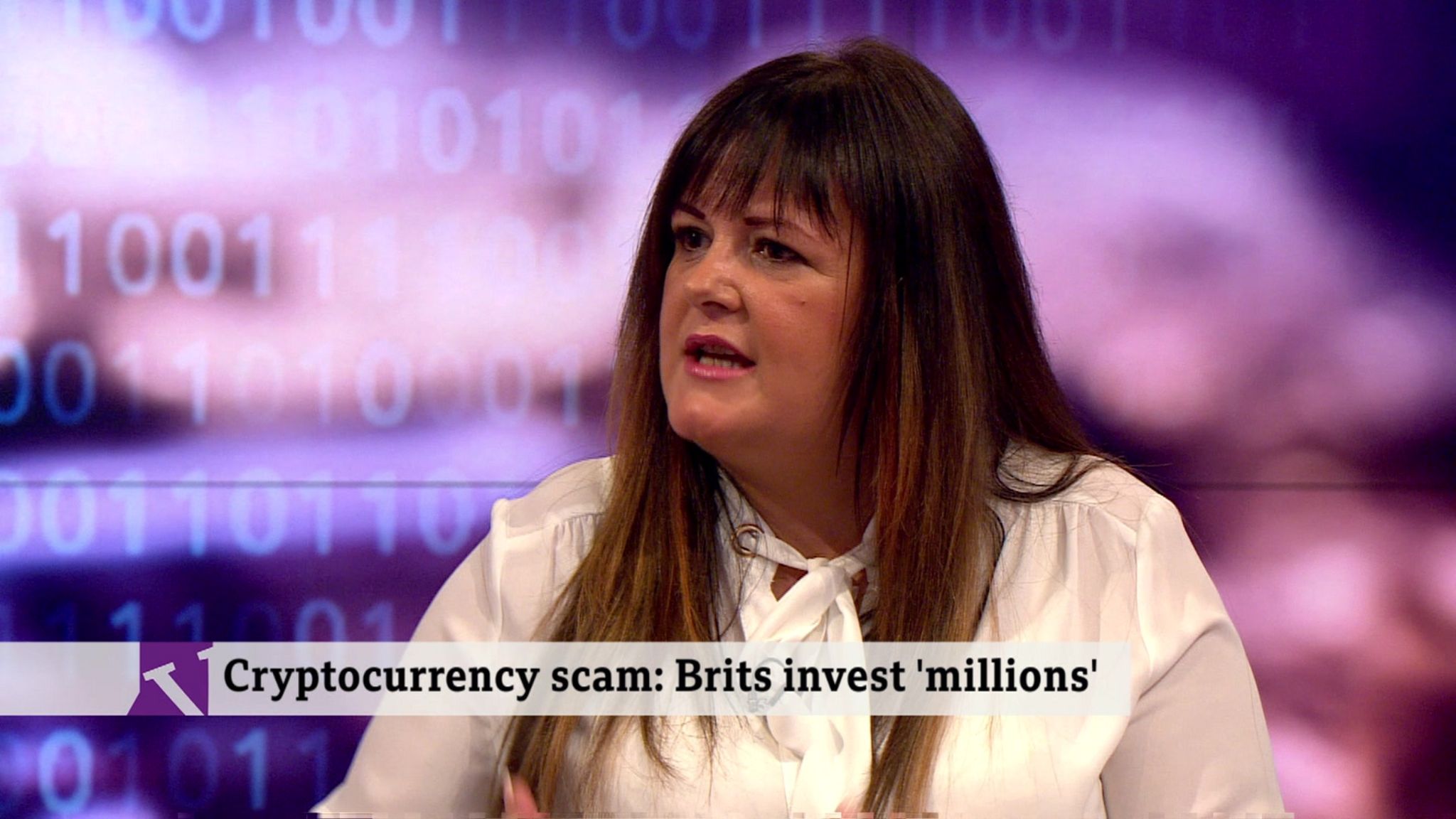
Over the next hour or so she listened carefully to people talking enthusiastically about this exciting new cryptocurrency - how it could transform her fortunes. All of them were "very up-tempo, full of beans, full of passion", she remembers. "You are so lucky that you're seeing this webinar right now," she was told. "You're in at such an early stage and it's just going to go like Bitcoin. It's going to go bigger."
The webinar hosts talked about Dr Ruja's glittering background: Oxford University, a PhD from Konstanz, a stint with the respected management consultancy, McKinsey and Company... A speech Dr Ruja had given at a conference hosted by The Economist magazine was shown - and that's what clinched it for McAdam. "That ticked a box... The power of the woman - well done! I felt proud of her."
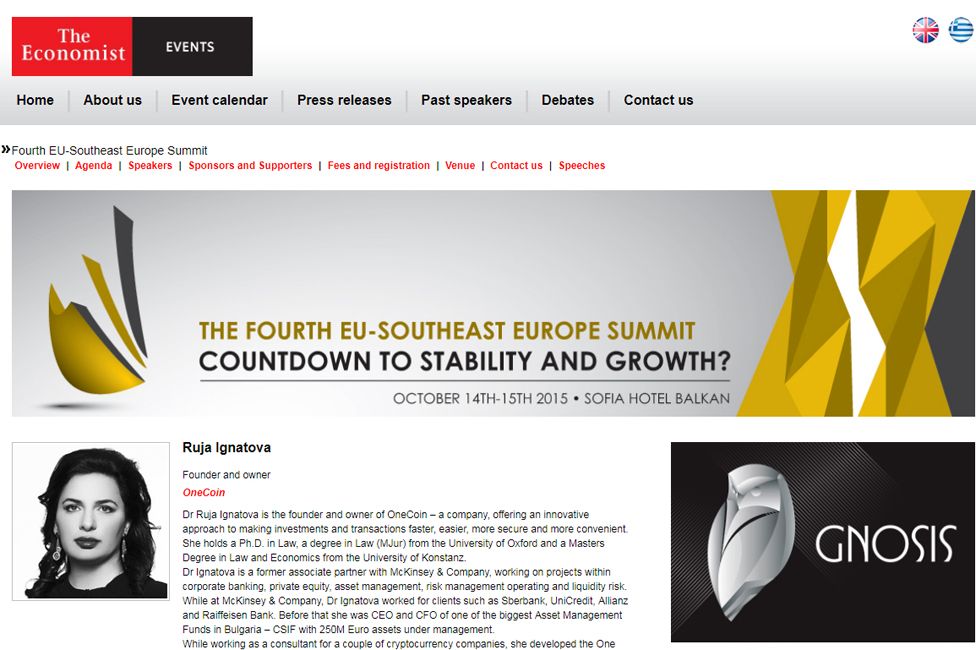
By the time the webinar had finished she had decided to invest €1,000. It was easy: you purchased OneCoin tokens, and these then generated coins, which went into your account. One day soon, she was told, she would be able to turn these coins back into euros or pounds. It seemed like easy money. Maybe €1,000 wasn't enough? The promoters said it was the larger packages that were really life-changing. The smallest package cost €140, but they went all the way up to €118,000. One week later McAdam bought a "tycoon" package, for €5,000.
Before long, she had invested €10,000 of her own money - and persuaded friends and family to invest €250,000 of theirs. She watched excitedly on the OneCoin website as the value of her coins steadily rose. Before too long they had passed £100,000 - a 10-fold return. She started planning holidays and shopping trips.

But towards the end of the year Jen McAdam was contacted by a stranger on the internet. He claimed to be a good Samaritan, someone who had studied OneCoin carefully and wanted to speak to people who had invested. Reluctantly, she agreed to a conversation on Skype. It turned out to be a shouting match, but it would send McAdam's life in a new direction.
The stranger was Timothy Curry, a Bitcoin enthusiast and cryptocurrency advocate. He thought OneCoin would give cryptocurrencies a bad name, and he told McAdam bluntly that it was a scam - "the biggest scam in the [expletive] world". He said he could prove it, too. "Well then prove it to me!" she replied, sharply.
Over the next several weeks, Curry sent a stream of information about how cryptocurrencies work: links, articles, YouTube videos. He introduced her to Bjorn Bjercke, the blockchain developer who said there was no blockchain.
It took McAdam three months to go through it all, but questions were starting to form. She started asking the leaders of her OneCoin group if there was a blockchain. At first she was told it was something she didn't need to know, but when she persisted she finally got the truth in a voicemail in April 2017.
"OK Jen… they don't want to disclose that kind of information, just in case something goes wrong where the blockchain is being held. And plus, as an application, it doesn't need a server behind it. So it's our blockchain technology, a SQL server with a database."
But by this stage, thanks to Curry and Bjercke, she knew that a standard SQL server database was no basis for a genuine cryptocurrency. The manager of the database could go in and change it at will.
"I thought, 'What???' And literally my legs just went, and I fell on the floor,'" she says.
The inescapable conclusion was that those rising numbers on the OneCoin website were meaningless - they were just numbers typed into a computer by a OneCoin employee. Far from putting an end to their financial worries, she and her friends and family had thrown a quarter of a million euros away.
Dr Ruja disappears
Although Jen McAdam had now seen the light, few other OneCoin investors had. Dr Ruja was still travelling the world to sell her vision - hopping from Macau to Dubai to Singapore, filling out arenas, pulling in new investors. OneCoin was still growing fast, and Dr Ruja was starting to spend her new fortune: buying multi-million-dollar properties in the Bulgarian capital, Sofia, and the Black Sea resort of Sozopol. In her downtime she would throw parties on her luxurious yacht The Davina. At one, in July 2017, the American pop star Bebe Rexha performed a private set.
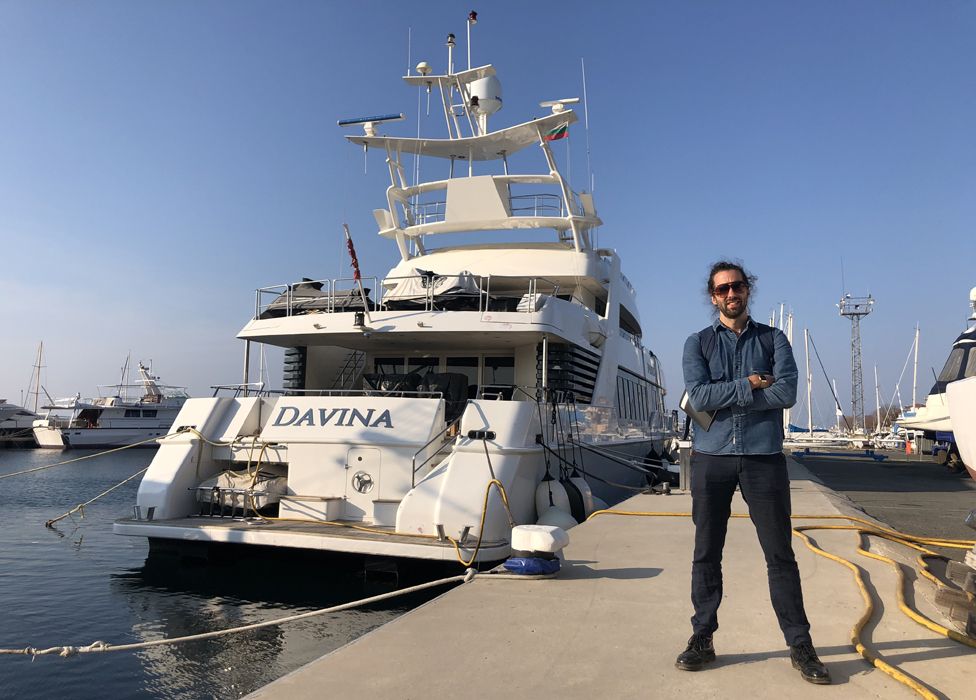
Despite the successful facade, trouble was brewing. The opening of a long-promised exchange that would allow OneCoin to be turned into cash kept being delayed - and investors were growing more and more concerned.
This was to be resolved at a large gathering of European OneCoin promoters in Lisbon, Portugal, in October 2017.
But when the day came, Dr Ruja - who was famously punctual - didn't show up.
"She was on her way. Nobody knew why she wasn't there," recalls one delegate. Frantic calls and messages went unanswered. The head office in Sofia, where she was such an imposing presence, didn't know anything either. Dr Ruja had vanished. Some feared she'd been killed or kidnapped by the banks, who - they'd been told - had most to fear from the cryptocurrency revolution.
In fact, she had gone underground. FBI records presented in court documents earlier this year indicate that on 25 October 2017, just two weeks after her Lisbon no-show, she boarded a Ryanair flight from Sofia to Athens. And then went completely off radar. That was the last time anyone saw or heard from Dr Ruja.
MLM's most successful product
Igor Alberts is wearing black-and-gold everything. Black-and-gold shoes, black-and-gold pleated suit, black-and-gold shirt, black-and-gold sunglasses, and he has a thick black-and-gold ring on. And every item of clothing is Dolce and Gabbana.
"When you look at my clothes, they are disciplined," he says. His wife, Andreea Cimbala, nods along, adding that if he wakes up and puts on pink underwear, he sticks to pink as he chooses his shirt, trousers and jacket.
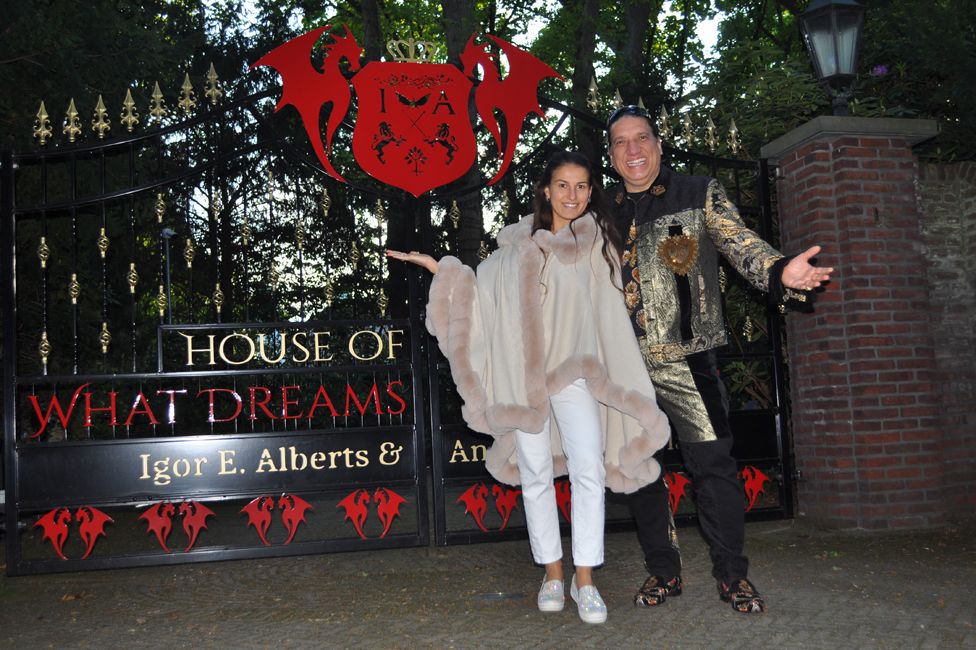
They live in an enormous house in an affluent neighbourhood on the outskirts of Amsterdam. At the gated entrance to their mansion is a 10ft-high wrought iron gate with their names and the slogan "What dreams may come". A Maserati and Aston Martin are parked outside.
Alberts was brought up in a poor neighbourhood. Then he got into network marketing, or multi-level marketing (MLM) as it is often known, and started making money. Lots of money. He claims he has made €100m over the last 30 years.
Here is how multi-level marketing works.
I pay £100 to start selling vitamin tablets directly to people. I sell a box to my friends, Georgia and Phil, and make a small cut. But then I recruit Georgia and Phil to start selling too, and I make a cut on their sales as well. They are now in what's called my downline. Phil and Georgia both recruit two people, and then all four of them recruit two more, and so on. This mushrooms very rapidly - 25 rounds of recruitment later and everyone in the UK would be selling vitamins. (And I, at the top, would be making a cut on all the sales.)
MLM is not illegal. Big companies like Amway and Herbalife use these techniques. But it is controversial, because usually only a small number of people make all the money. It's also notorious for exaggerated promises of high earnings and tough sales targets. When there is nothing of value to sell, though, and all the money is made by recruiting other people, it is illegal and goes by another name: a pyramid scheme.
In May 2015, already a very successful MLM seller, Igor Alberts was invited to a OneCoin event in Dubai, where he met lots of people, all apparently making fortunes with this new currency. Dr Ruja herself made a powerful impression too, with her "princess's dresses" and her vision of a financial revolution. Igor returned with a new mission - and gave new instructions to all the salespeople in his downline: stop whatever you're doing, and start selling OneCoin. "We gathered the teams together and we started to work like crazy," he says. "We made in our first month almost €90,000 out of nothing. Bang!"
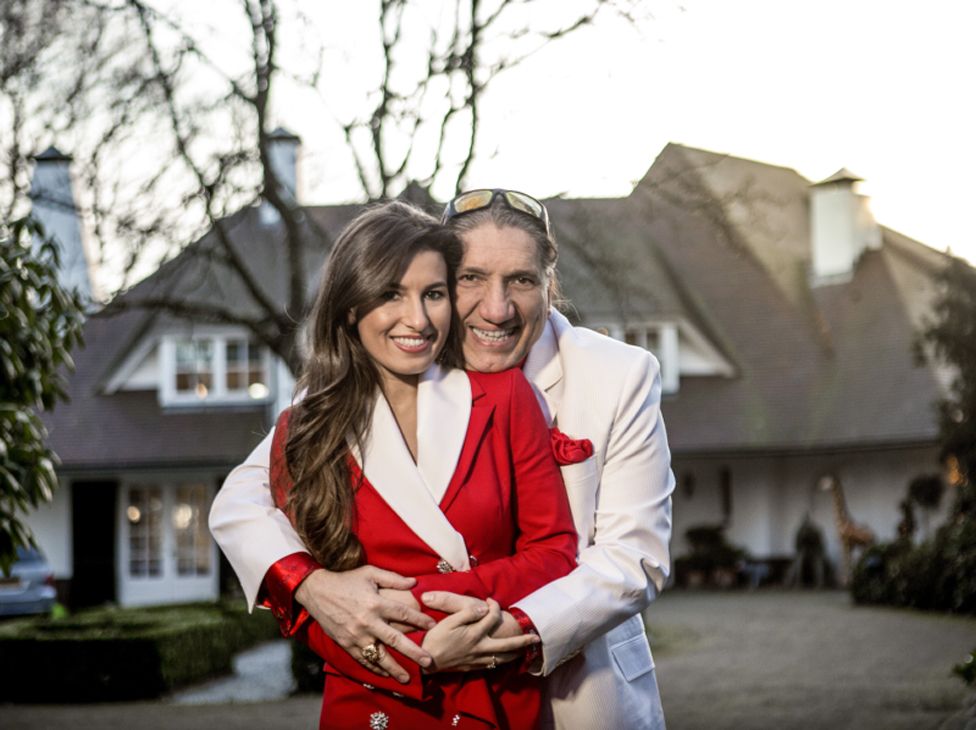
Dr Ruja's genius was to recognise that established MLM sellers with huge downlines were the perfect vehicle to market her fake coin - a plan the FBI says she privately referred to as "the bitch of Wall Street, meets MLM". This was the secret of OneCoin's success. It wasn't just a fake cryptocurrency, it was an old-fashioned pyramid scheme, with the fake coin as its "product". No wonder it spread like wildfire.
Fairly soon Igor Alberts was making more than €1m a month from OneCoin, which quickly became the biggest product in network marketing. "No other company even came close," Alberts says.
Sixty per cent of the income Igor Alberts and Andreea Cimbala made from OneCoin (in the end, more than €2m per month) was paid in cash, the rest in OneCoin. But they used some of this cash to buy more OneCoin. They, like almost everyone else involved, were convinced they were earning a fortune.
"I did the calculation how many coins we needed to become the richest person on the planet," Igor says. "I said to Andreea, 'We need to build it up to 100 million coins, because when this coin goes to €100 and we have 100 million, we are richer than Bill Gates.' It's mathematic. It's easy as that."

The nature of MLM networks - where people often recruit others who are close to them - creates a blurred sense of responsibility. Blame is not easy to apportion. And if sellers have invested their own money, they are victims too.
After Dr Ruja's non-appearance in Lisbon, a point came when Igor Alberts, like Jen McAdam, asked to see evidence of the blockchain. He didn't get it, and in December 2017 he quit.
I ask if he felt guilty, for having sold so many people a coin that didn't exist, and for having made so much money in the process.
"I felt responsibility. Not guilt," he replies. "You can never be blamed for believing in something. I had no clue that it could be false. I didn't even know what is a blockchain… What doubt can I have?"
He points out that he spent millions buying OneCoin, possibly more than anyone else.
By contrast, Jen McAdam says she bears a heavy burden of guilt. I ask her how much she earned from selling OneCoin and she says it was €3,000 - €1,800 of which she received in cash, and which she used to buy more OneCoin.
She feels guilty towards those who she introduced to OneCoin, she says, but also towards her late father, a miner, who worked hard all his life in horrible conditions, and left her the money that she then gave away.
Following the money
It's hard to know how much money has been put into OneCoin. Documents leaked to the BBC say €4bn between August 2014 and March 2017. I've also been told by more than one person that it could be as much as €15bn.
There's a famous saying in journalism, "Follow the money." So with Georgia Catt, producer of The Missing Cryptoqueen podcast, I went to see Oliver Bullough, an expert on what he calls Moneyland - the shadowy parallel world where criminals and the super-rich hide their wealth. The problem, he explains, is that following the money isn't as easy as it sounds, because criminals structure their companies and bank accounts in such a way that their assets seem to disappear. "They still exist", he says, in his garden near the village of Hay-on-Wye. "You can still use them to buy things, you can still use them to buy political influence and nice houses and yachts. But when it comes to someone trying to find them - whether that's a journalist or a police officer - they are invisible."
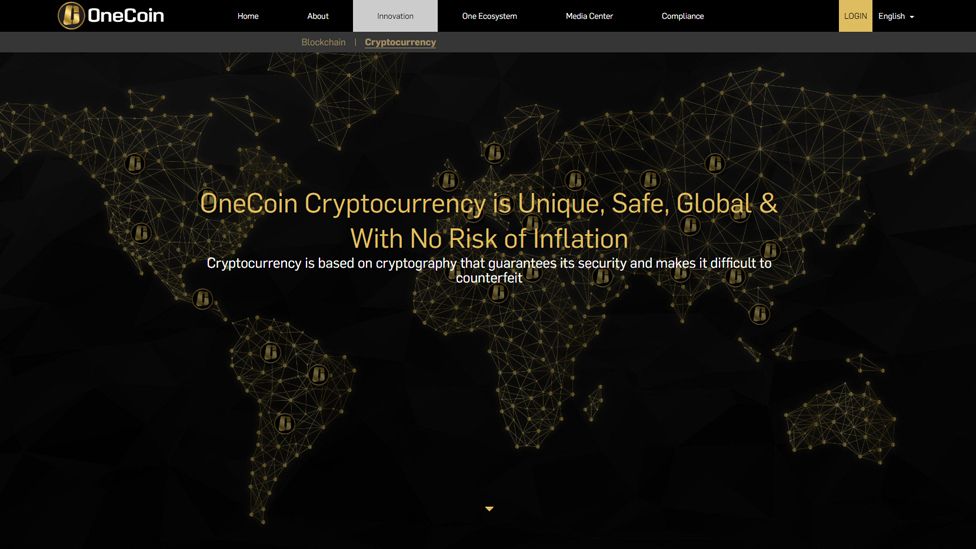
It's no surprise, then, that OneCoin's corporate structure is incredibly complicated. Here's an example: Ruja bought a very large property in central Sofia. Technically it was owned by a company called One Property. One Property was owned by another company called Risk Ltd. Risk Ltd was owned by Ruja, but was then transferred to some unnamed Panamanians, but it was still managed by another company called Peragon. And Peragon was owned by another company called Artefix, which was owned by Ruja's mother, Veska. And then in 2017, the ownership of Artefix was sold to an unknown man in his 20s.
Oliver describes this kind of dizzying arrangement as "improbably standard".
For several months, a French journalist called Maxime Grimbert tried to unpick OneCoin's corporate workings, collecting as many company names and bank account details as he could. I show his results to Bullough, who immediately notices how many British companies there are. "British companies are the companies of choice," he comments. "They're very easy to set up and they look legitimate."
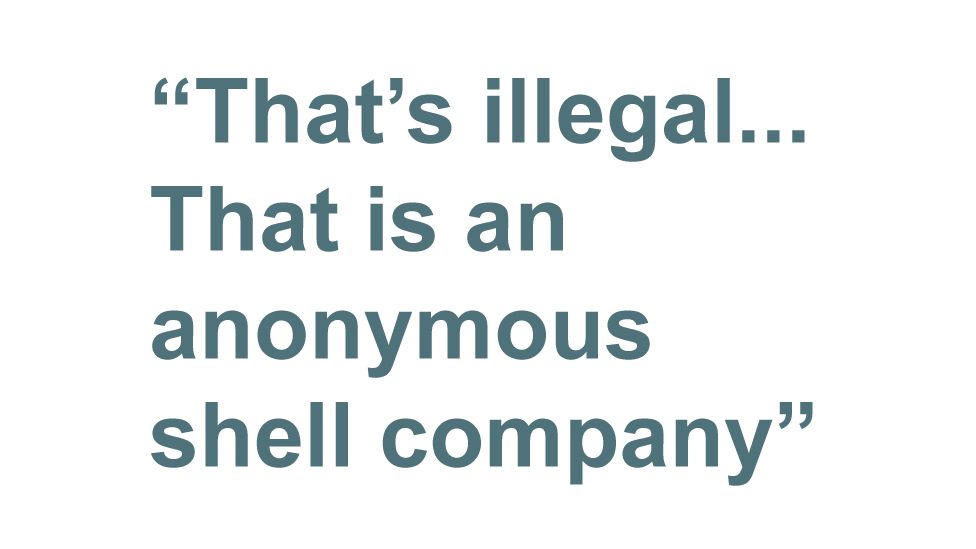
He takes the first one on the list and looks it up on the Companies House website. Everything is meant to be transparent - the website contains the details of every company in the UK. It's thought to...
Comments
Post a Comment